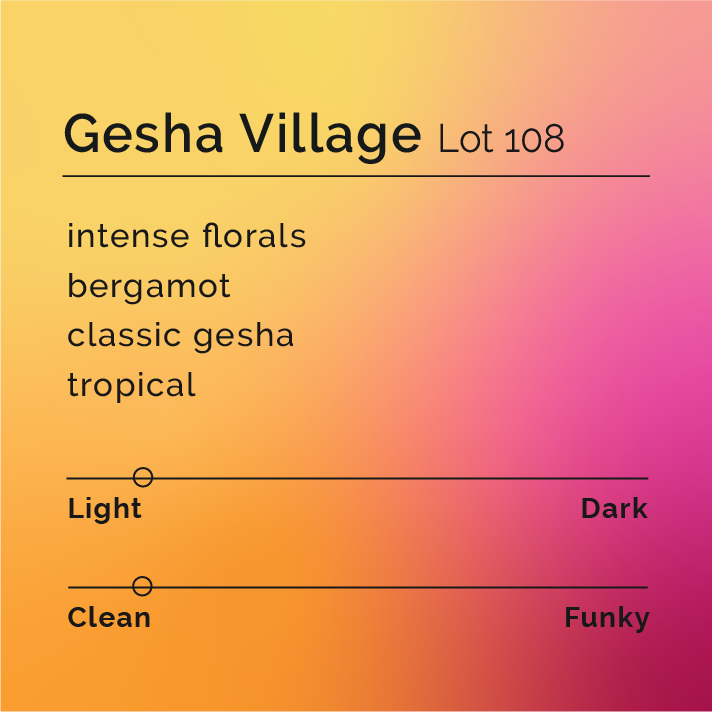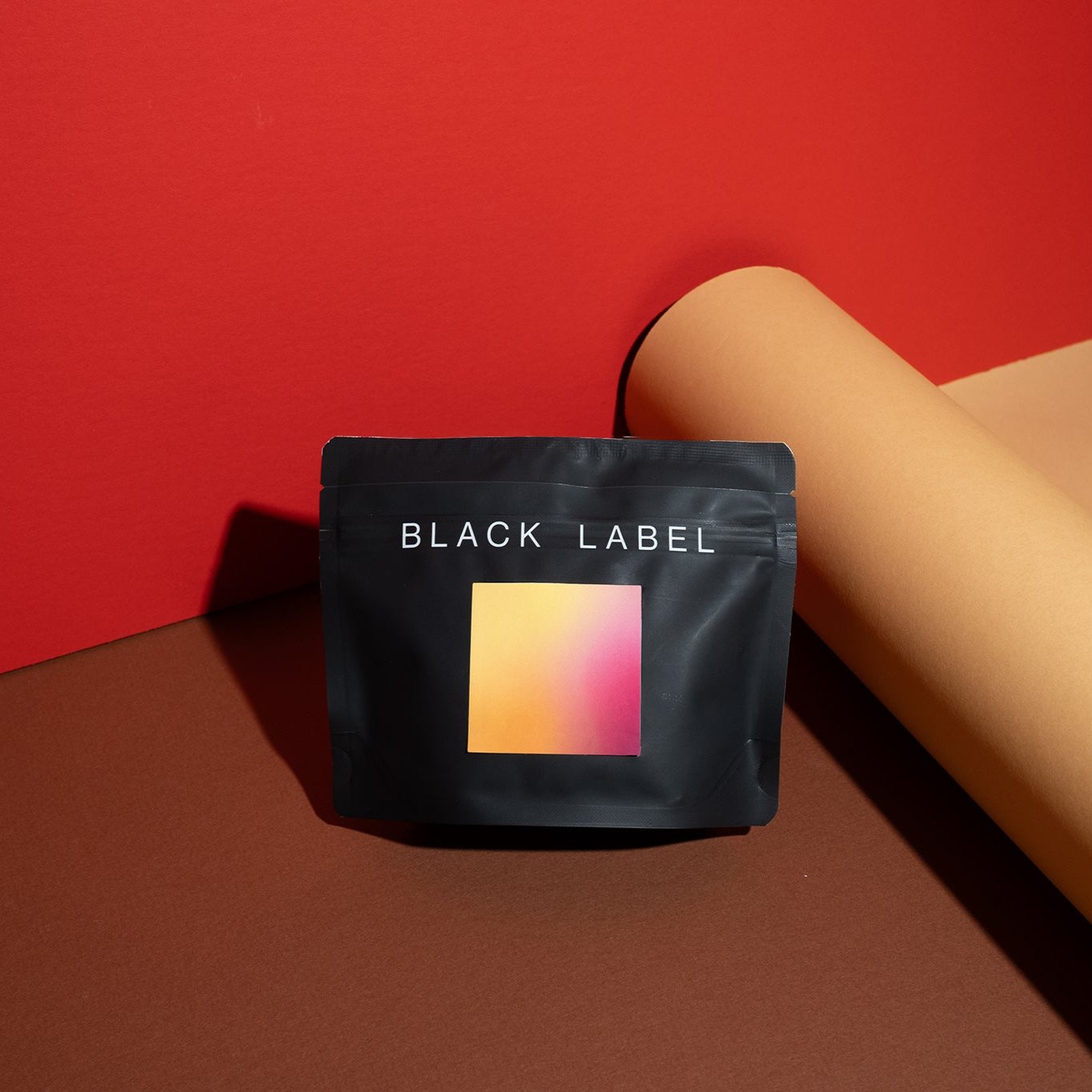Gesha Village - Lot 108
Description
Gesha Village is more than a household name (assuming those households include a specialty coffee drinker or two); it's a force. Coffee from Rachel's and Adam's farm in the jungle of western Ethiopia has found its way to the world stage numerous times, and for good reason. It is considered a "bucket list" coffee offering for many roasters around the world. And we here at Black & White have had the tremendous privilege of roasting coffee from Gesha Village Estate on numerous occasions, both for world barista competitors AND for all of you at home - and we do not take that privilege lightly.
MEET THE PRODUCER | Many of you probably already know their story, but a short synopsis still bears repeating here: the Gesha Village project started as an effort by Rachel Samuel and Adam Overton to document native, wild coffee species growing in the Gori Gesha Forest in the Bench Maji zone, where the Gesha variety originated.
Fast forward eight years, and the couple found themselves searching for the perfect piece of land on which to build the coffee farm of their dreams. They found that dream realized not far from that renown Gori Gesha forest they first visited in 2007. Today, the estate has grown to over 700,000 coffee trees and 30,000 native shade trees. With the partnership of the local Meanit Shasha Woreda people, the Gesha Village project has returned the value surrounding the name, "Gesha" back to the forests where the coffee first descended.
TRUST THE PROCESS | After being picked at peak ripeness, the whole coffee cherries were laid out on African raised beds to dry for thirty days.
TAKE A SIP | The first thing you need to know about this coffee: from the first sip to the last, it’s one of the cleanest naturals you’ll ever taste. When hot, the first thing you’ll notice is an intense florality that persists at every temperature, pairing with a sustained Gesha-like citrus to remind us of bergamot. At this temperature, stone fruit (like peaches) can be perceived, and the finish is long and pleasant, like sweet tea.
As the coffee approaches a pleasantly warm temperature, the acidity becomes more structured and citric, but all of those quintessentially Gesha characteristics prevail.
When cool, that acidity is abundantly tropical in nature, reminding us of strawberries, mango, pineapple, and lychee. It’s still remarkably clean and refreshingly bright, with a honey-like sweetness that lingers long past the final sip.
___________________________________________________________________________
Origin | Bench Maji Zone, Gesha, Ethiopia
Producers | Adam Overton, Rachel Samuel, & Willem Boot
Farm | Gesha Village
Process | Natural
Variety | Gesha 1931
Elevation | 1909-2063 masl



